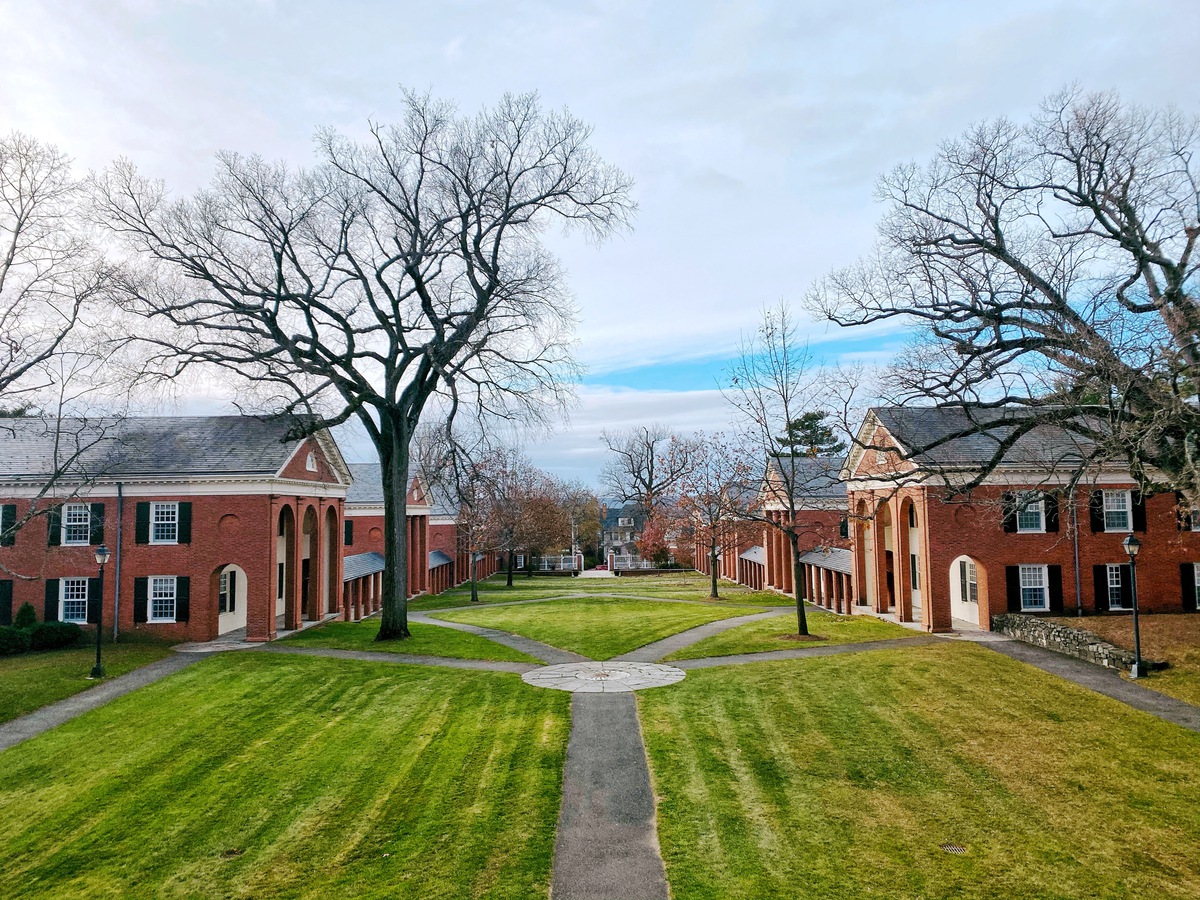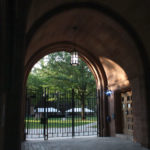Divinity students advocate for removal of board fee
Citing equity issues, Yale Divinity School students are speaking out against the mandatory $1,250 board fee.

Vaibhav Sharma, Photo Editor
Every Master of Divinity and Master of Arts in Religion student at the Yale Divinity School is currently required to pay the school’s annual board fee, prompting criticism from some students this past summer.
Tuition and fees at the Divinity School for the 2021-22 academic year total $30,892 — including the board fee of $1,250, which is intended for use in Yale dining facilities and the Divinity Refectory, a cafe within YDS. However, students have recently spoken out against the fee, saying that it perpetuates racial and financial inequalities on campus. One of those students, Ryan Arrendell DIV ’23, organized a petition over the summer titled “Free Our Coins” that called on YDS to make the board fee optional.
“We think it’s a very reasonable ask or request to have the board fee made optional because we understand that some students do like to have the convenience of paying a fee upfront and being able to have that consistent access to food through the Refectory or throughout campus, but we also recognize that other students don’t have the luxury of being able to afford a fee that is really imposed on them,” Arrendell told the News. “We think asking to make the fee optional is not an unreasonable ask at all.”
In an August 12 email to Arrendell written in response to the petition, YDS Dean Gregory Sterling said that the board fees were necessary to keep the Refectory open, that making the board fee optional would mean increased tuition and that YDS is addressing affordability overall at the school.
The petition outlines how students of color, women and international students are disadvantaged financially and are often less able to afford the fee.
The Yale Divinity School Student Government e-board sent the News a statement in support of Arrendell’s petition.
“The YDSG e-board and other elected officials are in solidarity with the YDS students seeking to end the mandatory board fee,” the YDSG board wrote in a statement to the News. “As an ever-changing institution, we recognize that this current student body’s needs are unmet. The board fee places an unequal burden on students with financial hardships and those forced to live off-campus due to a lack of accessible housing.”
The YDSG board said they are looking to move forward with ending the mandatory board fee for the 2022-23 fiscal year.
The YDS financial aid website affirms that the board fee cannot be waived. However, the website also says that students who are “hired by the University to serve as residential graduate affiliates and who receive a University board plan as part of their compensation” are exempt from paying the fee.
“I have a previous master’s degree, as well as a bachelor’s degree, so I have $85,000 in student loan debt, and so that’s what I’m coming into divinity school with,” Arrendell said. “So I’m doing my best to avoid taking out any student loans to not add to my debt. With Black students, it’s statistically shown that we earn less money even by having advanced degrees. We’re not offered the same interest rates, there’s just so many discrepancies and disparities in terms of what we’re able to earn even with a graduate degree from a school like Yale.”
Arrendell stressed that systemic inequalities are still “very present realities” for students of color, and that many Black and brown divinity students still have financial needs remaining despite the school’s scholarships.
She added that, regardless of students’ financial situations, the mandatory board fee does not provide students with the autonomy they believe they should be afforded. According to Arrendell, students did not have to pay the board fee during the 2020-21 academic year because they were not on campus due to the COVID-19 pandemic. As such, she said she became involved with advocacy about making the board fee optional when it was reinstituted for the current year.
In an email obtained by the News, Sterling responded to Arrendell’s petition.
“The board fees go to Yale Dining and help make it possible to keep the Refectory open,” Sterling wrote in the email to Arrendell. “The board fees do not cover all of the costs; we provide a healthy subvention to keep the costs down — typically ca. $100k. There are no refunds because the fees do not cover the expenses and do not come to the School. In some years, we would have had to close the Refectory if not for the board fees. This would have seriously undermined our efforts to build community and created a hardship since there are no other food services within a half-mile.”
In the email, Sterling highlighted that affordability is one of his main goals. He wrote that the school has raised around $40 million to help YDS students during his tenure as dean, which has allowed the school to double their financial aid offerings over the past nine years.
Sterling explained that the Divinity School purposefully opted against including the board fee in tuition and letting students pay for food as they chose because it would impose a “greater burden” on the students who do not have full tuition scholarships. He said that YDS would have to raise tuition if the board fee were optional, but the school would not be able to raise scholarships a comparable amount.
“Dean Sterling would only add that YDS is working very hard to meet the full tuition costs of all students with demonstrated need by next year,” YDS spokesperson Tom Krattenmaker wrote in an email to the News. “From FY 13-14 to FY 21-22, we’ve been able to reduce from $8,400 to $1,500 the tuition expenses paid by students receiving the standard financial aid package. Meeting students’ tuition needs has been and remains our priority. When we reach this goal, we will immediately turn to living expenses.”
The Yale Divinity School currently offers both merit and need-based scholarships.
Correction, 9/8: A previous version of this article stated that YDS tuition was $30,892 for the 2021-22 academic year. In fact, this number includes tuition and other fees such as the board fee, the health fee and a comprehensive fee. The article has been updated to reflect this.









